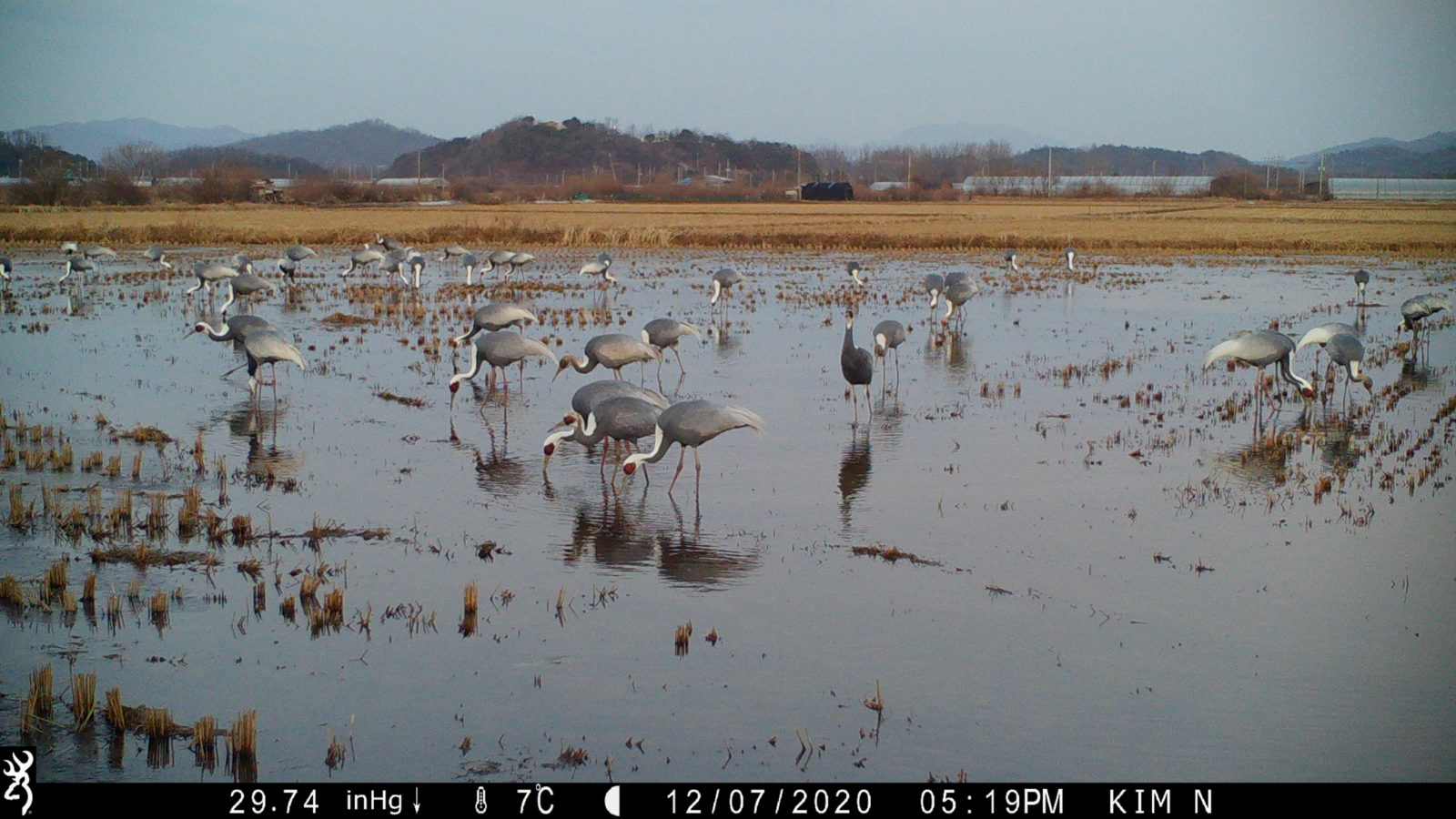Centre for Anthropocene Studies, South Korea 2018–
Taking much inspiration from the Anthropocene Curriculum project, the Center for Anthropocene Studies (CAS) was established in 2018 at KAIST with funding from National Research Foundation of Korea. It aims to provoke a paradigm shift in academic research, public policy, and social engagement through collaborations with scientists and artists.
Read More
- Case StudyMyung Ae Choi, Buhm Soon Park
Technological DMZ
Research on one of the most important wintering places for cranes that happens to lie in the Demilitarized Zone (DMZ) between North and South Korea.
Case Study, Communicating, Ecology, Human-animal relations, Local knowledge, Species, Agriculture
- projectJamie Allen, Myung Ae Choi, Martin J. Head, Scott Gabriel Knowles, Daniel Niles, Buhm Soon Park, Jürgen Renn, Georg N. Schäfer
Projecting the Anthropocene
The Earth system has become increasingly destabilized, with growing
evidence that human activities are the primary cause. However, our
current financial, economic, social, political, and industrial systems are
not evolving fast enough to address the pace and scale of planetary
change. The concept of the Anthropocene (인류세, 人類世) has
provided a novel framework for debating scientific methods of sensing
these transformations, discussing more-than-human ways of inhabiting
together, and exploring artistic imaginations for alternative futures. This
symposium brought together experts from various disciplines, including
Earth sciences, biological sciences, electrical engineering, mobility
studies, humanities, social sciences, industrial design, new media art, and
documentary production, to project our better futures in the Anthropocene. - projectSeul-gi Lee, Jamie Allen, Jisoo Lim, Buhm Soon Park, Jürgen Renn, Lina Schwab, Georg N. Schäfer
Anthropocene Labs
“Anthropocene Labs” is a collaboration with Korea Advanced Institute of Science & Technology (KAIST), in Daejeon, South Korea.
